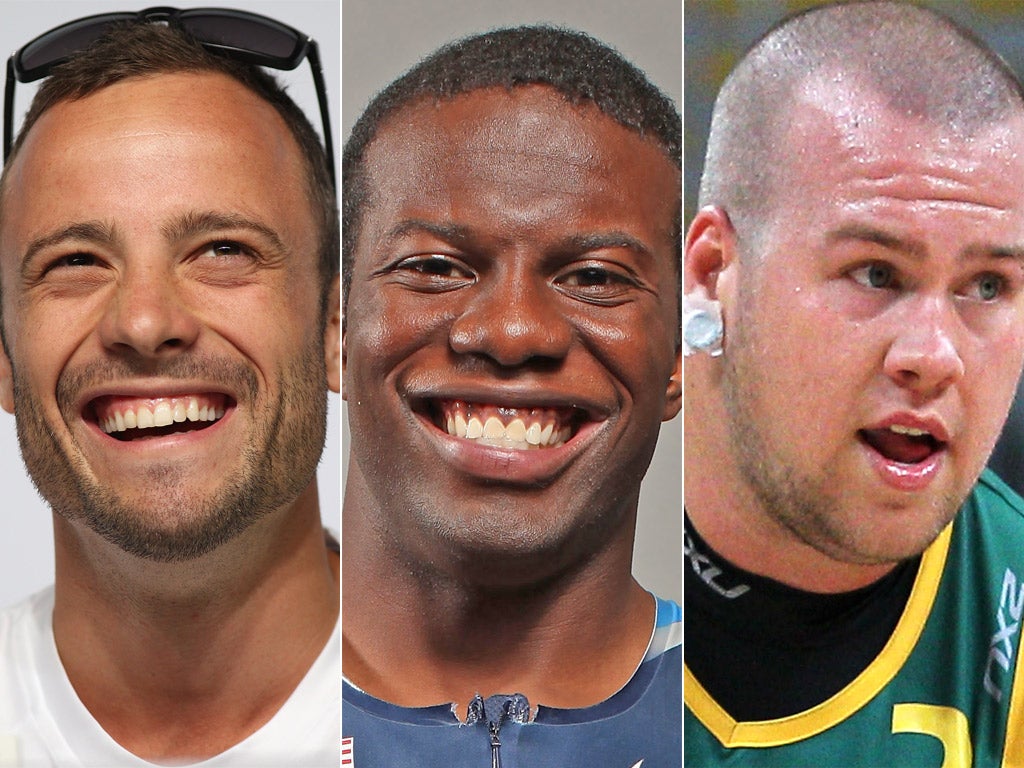If you thought the Olympians were amazing, just wait for these Paralympic athletes

It is pointless to pretend not to be interested in the thousands of extraordinary roads that have lead this week to Stratford from all over the world. Or that the backstories of the individuals gathered in the stadium last night do not matter. Or that the Paralympic Games are only about elite sport and nothing else.
The founder of the Games, Dr Ludwig Guttman, never thought that. We don't approach phenomenal achievement in non-disabled sport, or anything in life, in such a fashion and we will always more greatly admire someone who has worked unimaginably hard to get where they are.
The Paralympics are most definitely not about courage or bravery, although that is not going to stop being moved by those virtues.
But then, one of the great attractions of sport, like nothing else, is that there is a time, and an often unbelievably brief one, after the gun fires or the whistle blows or the bell rings for round one, that all that just goes out the window. And in its place is nothing but the thrill of the contest.
We will be moved by the next week and a half in ways that probably cannot be predicted, but we will be gripped, too, by the drama, in the most straightforward fashion.
"Focus on the ability, not the disability," has long been the mantra of single-amputee sprinter Jerome Singleton. In Beijing four years ago, he was 25 metres ahead of the great Paralympian Oscar Pistorius, in the 100-metre final, with less than 50 metres to go. But the South African reeled him in and passed him on the line, as Singleton's face transformed into a vision of exertion and anguish; heartbroken and without breath.
This time round, the two men will also have to contend with Great Britain's 19-year-old sprinting sensation Jonnie Peacock, who ran sub-11 seconds earlier this year, breaking Pistorius's world record. When the gun fires next Thursday, there will be that same agony and ecstasy. Pistorius has simply said: "Bring it on." Where the Masai tribesman David Rudisha left his rivals trailing three weeks ago to obliterate the 800-metre world record, this weekend will bring Great Britain's phenomenal wheelchair racer David Weir, eyes fixed on the first corner, sweeping past the Olympic flame amid the same deafening roar.
Tattooed on his chest is a Japanese symbol meaning "to win". If his body defines him, it is that, not the spinal-cord transection he was born with.
In the Velodrome, where the spectre of Hoy, Pendleton, Kenny and Trott still linger, ParalympicsGB will be looking to carry on the dominance. For Sarah Storey, it is 20 years since she won her first Paralympic gold, aged 15, in the swimming pool in Barcelona.
In the basketball arena, welders with oxyacetalene torches will be on hand as the wheelchair rugby players seek to, in the words of Great Britain's Ross Morrison, "beat the living daylights out of each other".
They are desperate for a medal, having finished fourth in Beijing and Athens, but, like every other country, will have to contain Australia's Ryley Batt, the stand-out star of the sport. The International Paralympic Committee's head of communications, Craig Spence, knows him well. "My last job was for the Rugby League Super League," Mr Spence said. "But I have still never seen anyone hit anyone else as hard as he does." It may be fright, not admiration, that grips the crowds then.
But hardest of all, next Saturday, for the final time this summer, Oscar Pistorius will come bounding down the home straight in the 400-metre final, as he has done many times already, in the Olympic semi-final, and the 4 x 400m relay final, realising the dream of Dr Guttman, in front of his daughter and descendants, that a Para-athlete might race against his Olympic counterparts. And then, that will be it. The Olympic circus will move on.
Join our commenting forum
Join thought-provoking conversations, follow other Independent readers and see their replies
Comments
Bookmark popover
Removed from bookmarks